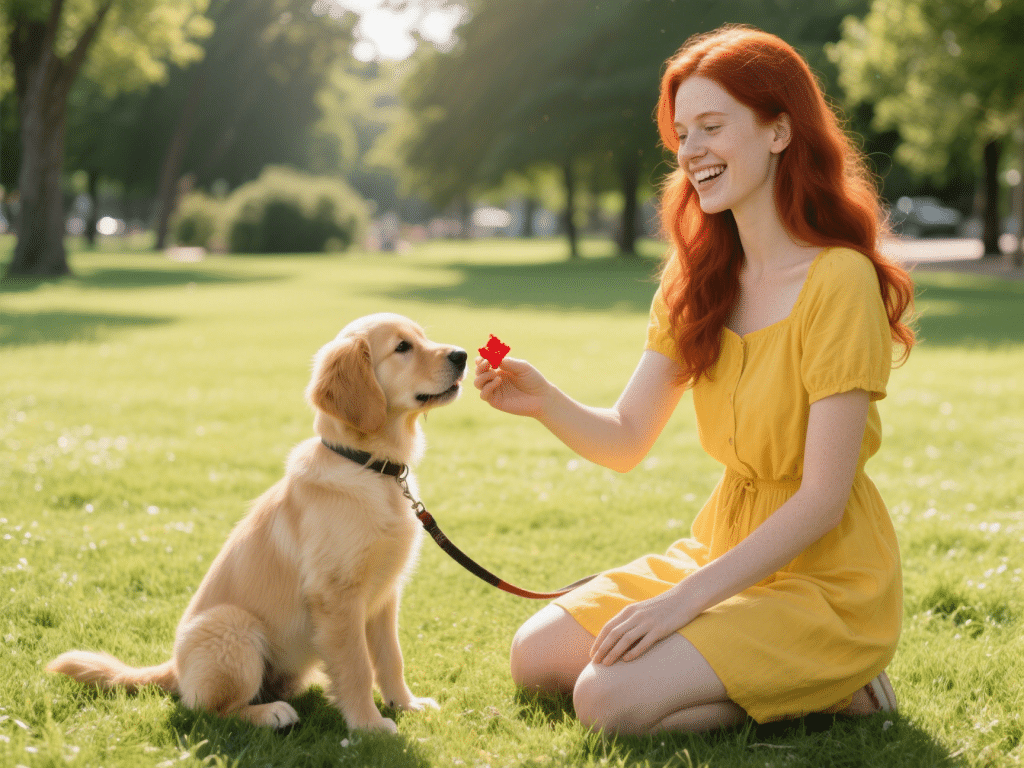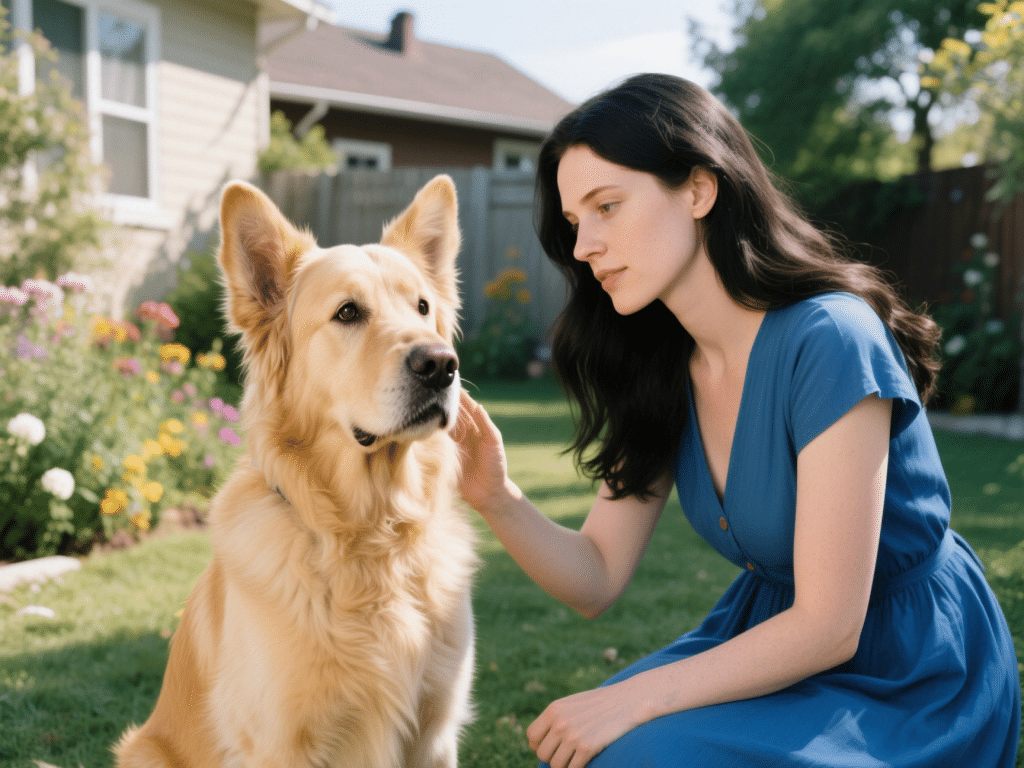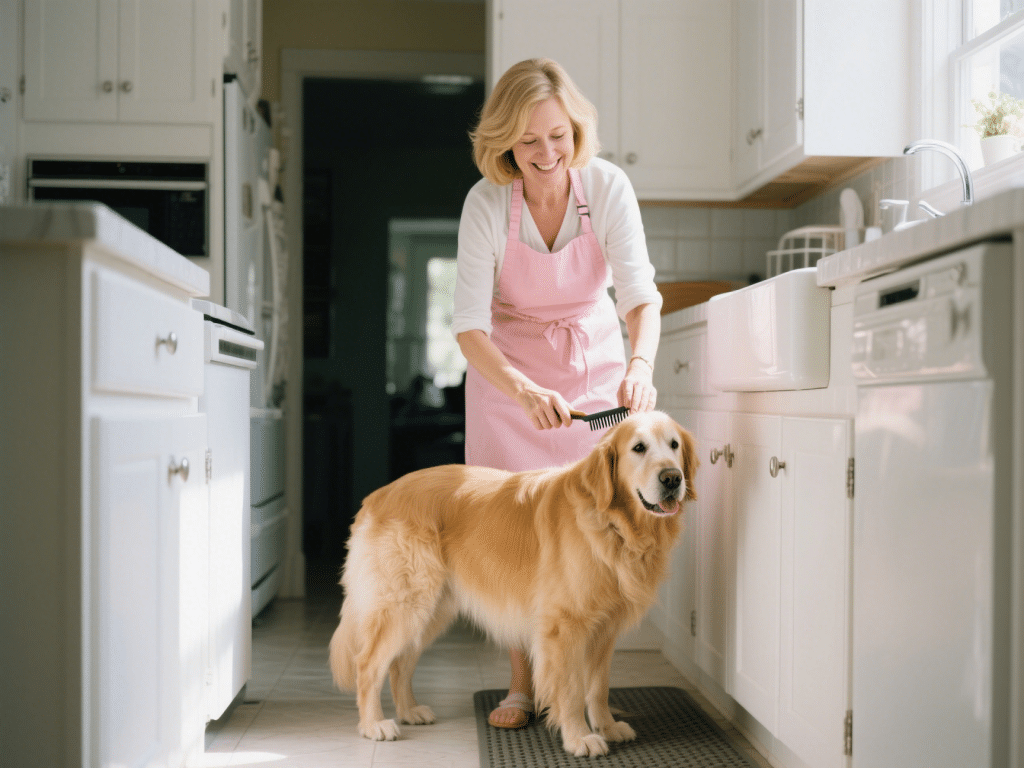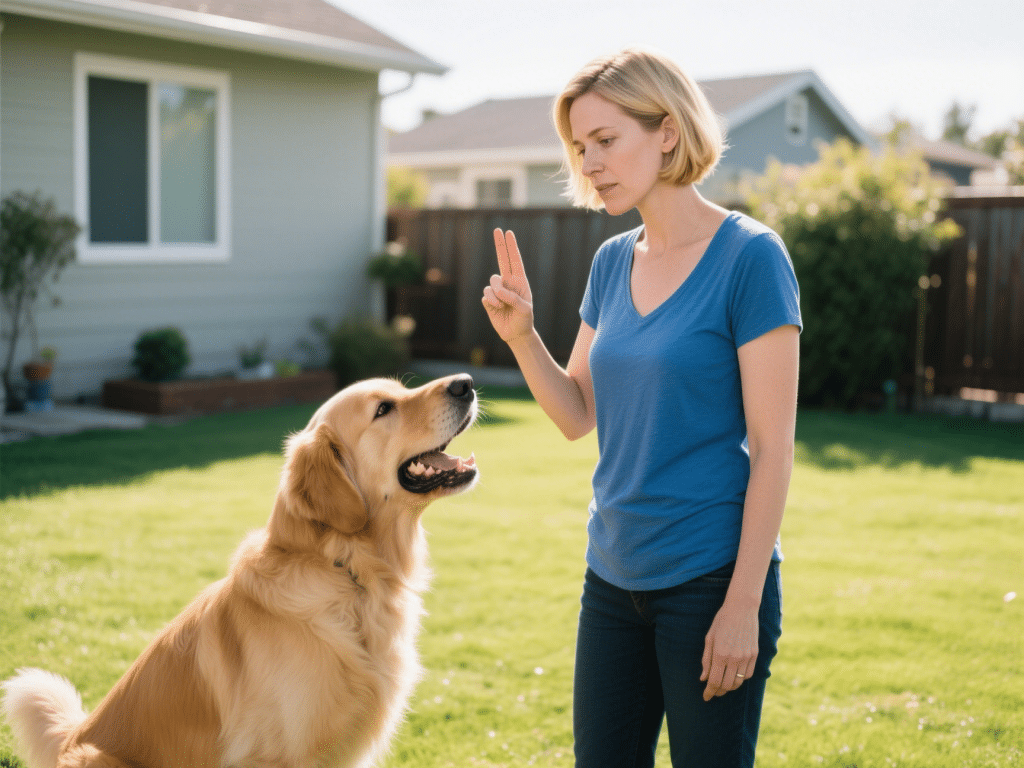Training Your Dog to Be a Well-Behaved Companion
A well-trained dog isn’t just a pleasure to live with; it’s a safer, happier, and more confident member of your family. Effective training builds communication, strengthens your bond, and prevents common behavioral issues. Forget dominance theories; modern, science-based methods using positive reinforcement yield the best and most lasting results.
Core Principles: Positive Reinforcement Works
Reward Desired Behavior: Immediately mark (using a clicker or a clear “Yes!”) and reward your dog with high-value treats, praise, or play the moment they perform the action you want. This creates a clear association.
Ignore or Redirect Undesired Behavior: Avoid yelling or physical punishment, which damages trust and can increase fear or aggression. Instead, calmly redirect your dog to an appropriate behavior and reward that.
Consistency is Crucial: Everyone in the household must use the same commands and reward system. Mixed messages confuse your dog.
Short & Frequent Sessions: Dogs learn best in bursts. Aim for 5-10 minute sessions, 2-3 times daily, rather than one long, frustrating hour.
Patience and Realistic Expectations: Learning takes time. Celebrate small victories and understand setbacks are normal.
Foundational Skills Every Dog Needs
Mastering these core commands provides structure and safety:
Sit: The cornerstone of control.
How: Hold a treat near your dog’s nose, slowly move your hand up and slightly back over their head. As their head follows the treat, their bottom naturally lowers. Say “Sit” as it happens, mark, and reward. Repeat.
Stay: Builds impulse control and safety.
How: Start with your dog in a Sit. Hold your palm out like a stop sign, say “Stay,” take one small step back. Immediately return, reward while still sitting, and release with “Okay!” Gradually increase distance and duration before adding distractions.
Come (Recall): Potentially life-saving.
How: Start indoors/low distraction. Say your dog’s name + “Come!” in an excited, happy voice. Run away a few steps to encourage them. When they move towards you, mark, reward lavishly when they reach you. Never call for punishment. Make coming to you the best thing ever.
Loose Leash Walking: Enjoyable walks for both.
How: Stop moving the instant the leash tightens. Stand still or change direction. Reward heavily when the leash is slack and your dog is near your leg. Focus on rewarding the position you want, not punishing pulling. Consider a front-clip harness for management.
Leave It: Prevents grabbing dangerous or unwanted items.
How: Place a low-value treat in your closed fist. Let your dog sniff/nudge it. Ignore this. The instant they back off or look away, mark and reward with a different, higher-value treat from your other hand. Gradually progress to treats on the floor covered by your hand, then uncovered.
Addressing Common Challenges
Jumping Up: Ignore completely (turn away, no eye contact/touch/talking). Reward only when all four paws are on the floor. Ask visitors to do the same. Teach an incompatible behavior like “Sit” for greetings.
Excessive Barking: Identify the trigger (doorbell, people passing). Teach a “Quiet” cue: Wait for a brief pause in barking, say “Quiet,” mark the silence, and reward. Manage the environment (close curtains, provide white noise) while training.
Chewing: Provide ample appropriate chew toys. Supervise closely or confine when unsupervised. If caught chewing something wrong, calmly redirect to a toy and reward chewing it. Ensure sufficient physical and mental exercise.
Socialization & Manners
Early & Ongoing Exposure: Safely expose your puppy/dog to diverse people, dogs, sounds, surfaces, and environments during critical socialization periods (puppyhood) and throughout life. Pair new experiences with positive rewards.
Polite Greetings: Train your dog to sit calmly before meeting people or other dogs. Reward calm behavior. Discourage jumping or excessive excitement.
Settle/Relaxation Cue: Teach a specific command (like “Place” on a mat or “Settle”) to signal downtime. Reward calm resting behavior.
Advanced Tips for Success
Find High-Value Rewards: Discover what motivates your dog most (chicken, cheese, tug toy) and reserve these for training.
Manage the Environment: Set your dog up for success by limiting access to temptations (e.g., using baby gates, keeping shoes put away) during training phases.
Mental Stimulation: Use puzzle toys, scent games, and trick training to tire your dog’s mind, reducing boredom-related misbehavior.
Seek Professional Help: Don’t hesitate to consult a certified positive reinforcement trainer (CPDT-KA, KPA CTP, IAABC) for persistent issues, fear, or aggression.
Conclusion: The Journey to a Lifelong Companion
Training your dog is an ongoing investment in your relationship. By consistently applying positive, reward-based methods focused on clear communication and patience, you cultivate not just obedience, but genuine trust and companionship. A well-behaved dog gains confidence and freedom, enriching your life together immeasurably. Start with the basics, celebrate progress, and enjoy the journey of shaping your dog into the wonderful companion they can be.










Comments on " Training Your Dog to Be a Well-Behaved Companion" :